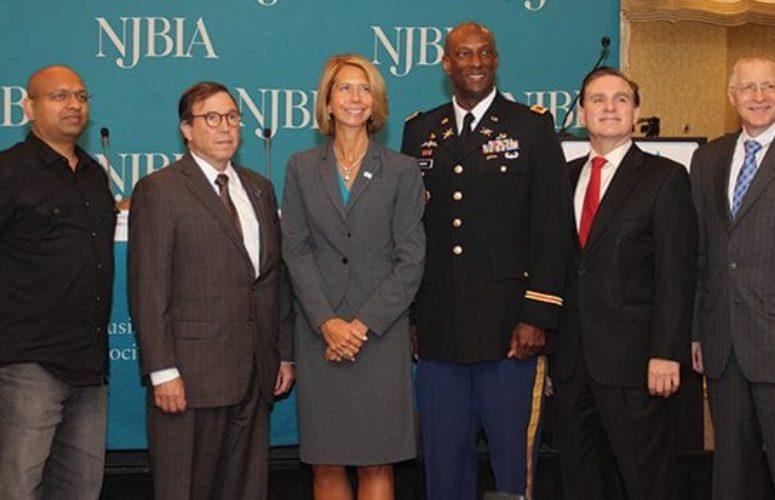
‘Innovative Advice’ at NJBIA’s Innovation Summit
Cutting-edge innovation techniques and tactics revealed.
By George N. Saliba, Managing Editor On Oct 30, 2017New Jersey has long been a source for innovation in the medical, pharmaceutical and telecommunications spheres, for example. Yet, we today compete with numerous other states and nations, as the broader innovation landscape continues its rapid evolution.
At the New Jersey Business & Industry Association’s (NJBIA’s) Innovation Summit, recently held in East Windsor, President and CEO Michele N. Siekerka said, “We have an agenda [at NJBIA that includes] ongoing dialog with policymakers and regulators [and also] bringing together our business community, academic leaders, nonprofits, everyone – all in one room – talking about: ‘How do we advance an innovation agenda for the state of New Jersey?’ Today is a part of that process, to talk about best practices, share success stories, and to [examine] collaboration in unique areas.”
Donald Sebastian, president of the New Jersey Innovation Institute at the New Jersey Institute of Technology (NJIT), regaled the audience with the history of industry and innovation in New Jersey, from the state’s early days to its current dynamics. He told the audience how our existing anchor tenants in our economy must “understand the need to embrace all of the different things that are out there [that are important], in order [for them] to cope with the marketplace challenges that come from the cost and quality of international competition, and [also for them] to take advantage of new technologies. … It is an unusual time when the ground is sort of shifting under everyone.”
At the event, three companies and a representative from the United States military detailed how they are adapting to this ever-changing world – and how they must innovate in new ways. AB/InBev’s Rama Garikapati, who is the director for the TechNWK Incubator in Newark, cited the advantages of bringing numerous companies together for intensive brainstorming over several days, to help foster rapid innovation; Col. James Martin, commander of Army Support Activity for Fort Dix, used a video to detail the complex challenges the military now faces, and he explained, overall, how innovation is critical to the military’s success; Dr. Andrew Pecora, president of Physician Enterprise and chief innovation officer at Hackensack Meridian Health, explored, in part, how innovative data can improve both patient care and reduce costs; and Stephen Sichak, executive vice president at Franklin Lakes-based Becton Dickinson (BD) detailed a range of energy- and product-related insights.
Sichak said, “If you want to innovate, establish a challenging goal. And when I say challenging, I mean one that can’t be accomplished in a linear fashion.” He added, “If you want to be innovative, you can never, ever, give up. You have to keep focused on the goal, and keep pushing forward, until you come up with an innovative solution.”
While communication and other technologies have emerged in a global economy, some additional basics remain. As Col. Martin told the audience, “Once you have looked out to the future, and you have done an assessment – an honest assessment of what the future could look like – then you bring the team together, and say, ‘If we don’t make this move, if we don’t innovate in this specific direction, there is no guarantee that any of us will have a job in five years.’ I think that gets everyone aligned around the vision, and then we can have a vision statement that is actually meaningful, versus something in the organization that most people can’t recite.”
Related Articles:






